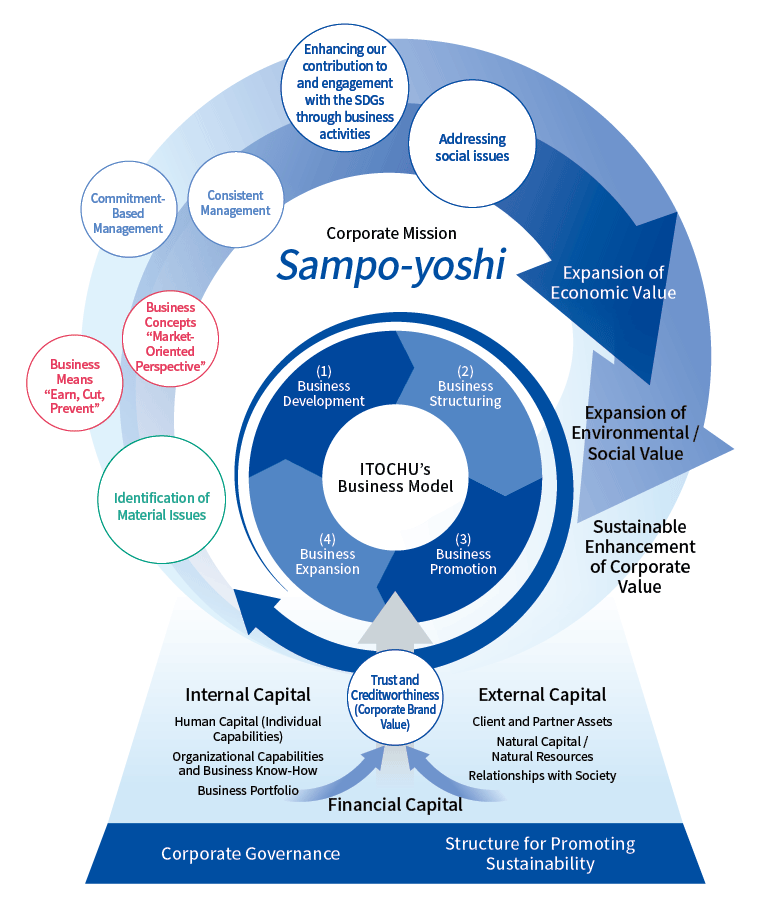Our Sustainable History and Value Creation Model
The Roots of Our Management Philosophy
ITOCHU Mission: Sampo-yoshi

Guided by our Group’s corporate mission, “Sampo-yoshi” (Japanese for “good for all three sides”: good for the seller, good for the buyer, and good for society), ITOCHU seeks not only to achieve profit but also to help address social issues, in line with the trust and expectations placed on us by our diverse stakeholders, including our investors and shareholders, business partners, and employees.
Our Founder, Chubei Itoh, and Sampo-yoshi
The foundation of ITOCHU Corporation traces back to 1858, the year in which Chubei Itoh set out from his hometown of Toyosato Village (Shiga Prefecture) to Nagasaki as a traveling linen merchant.
Chubei Itoh’s business was based on the spirit of Sampo-yoshi, the management philosophy of merchants of Ohmi.
The philosophy originated in the shogunate era, when the Ohmi merchants were permitted to do business in the regions they visited because they focused not only on “good for the seller” and “good for the buyer”, but also on contributing to the economy of these regions, or “good for society”. This can be said to form the roots of modern sustainability.
The roots of Sampo-yoshi are said to lie in Chubei Itoh’s personal motto, “Trade is a compassionate business. It is noble when it accords with the spirit of Buddha by profiting those who sell and those who buy and supplying the needs of society.” The spirit of Sampo-yoshi, based on trust and credibility, has been passed down in our company for over 160 years since our founding, and we will continue to uphold this enduring spirit in the future.
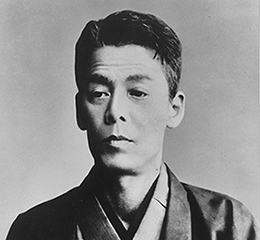
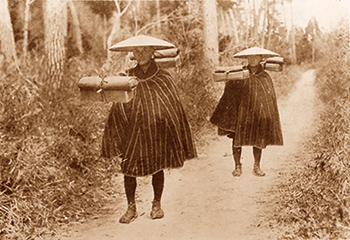
A Management Philosophy Inherited from Our Founding
Rational and Progressive Management
In 1872, Chubei Itoh established a “store law” to modernize management. The store law was a set of house rules covering what today could be called the corporate mission, guideline of conduct, human resources system, and employment regulations, which subsequently became the philosophical foundation of ITOCHU Corporation’s management. Additionally, Chubei Itoh introduced pioneering management methods for the time, such as adopting a meeting system that emphasized communication with employees and codifying of a system of sharing profit between three parties,* thereby building a foundation of mutual trust with employees and achieving rational management.
- System of sharing profit between three parties: In an era where the feudal influence remained strong, this was an extremely progressive philosophy of sharing profits with employees. The store’s net profit was divided among three parties: the store owner, the store’s reserve fund, and store employees.
Front-line Capabilities and Customer Focus
Chubei Itoh stated, “The footprints of the landowner become fertilizer for the fields, and the gaze of the herdsman enhances the sheen of the cattle and horses,” encouraging management to lead by example and go to the front-line. Additionally, all employees were assigned to branch stores for thorough on-site training, urged to continuously improve with a high level of business compliance, and taught to show utmost respect to customers. These front-line capabilities and customer focus are important perspectives that connect to our market-oriented approach today.
Employees Are Family
Employees were treated with deep affection, akin to family. An example is the sukiyaki parties held each month on days ending with a 1 or 6, where all employees participated in an informal gathering with no hierarchy. Unusually for that era, many group photographs were preserved and featured all employees, also reflecting the company’s care for its employees. This spirit of “employees are family” is alive today in our current Work-Style Reforms.
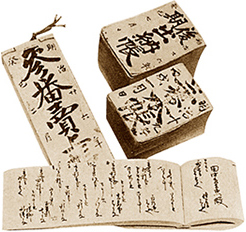
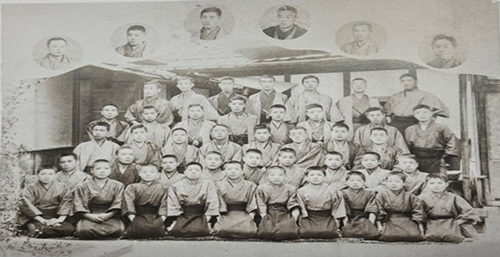
More than 160 Years of History and Sustainability
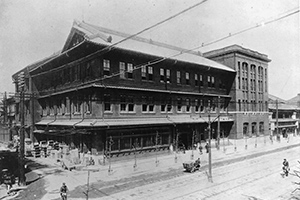
How has ITOCHU Group been able to keep developing for more than 160 years since its founding? The answer lies in the trust we have built in our company by continuously responding to customer and societal needs, based on the spirit of Sampo-yoshi inherited from our founding.
Our Group’s initiatives rooted in Sampo-yoshi are currently contributing to enhanced corporate value, sustainability, and business longevity, garnering interest not only domestically in Japan but abroad, including in their selection for a Harvard Business School case study.
Moving forward, our Group will continue to enhance corporate value and achieve sustainable growth through the practice of Sampo-yoshi.

Trust and Sustainability
Sandra J. Sucher
Professor of Management Practice, Harvard Business School
Internationally recognized trust researcher, studying how organizations become trusted and the vital role leaders play in building and restoring trust. Author of 110 business cases, technical notes, video interviews, teaching notes, and three books, including The Power of Trust. Business executive for 20 years before joining Harvard, including as a senior executive at Fidelity Investments, and has served on corporate and nonprofit boards and as Chair of the Better Business Bureau. Currently a member of the Edelman Trust Institute Advisory Board.
The first time I heard the English translation of the philosophy of Sampo-yoshi, “Good for the Seller, Good for the Buyer, Good for Society,” it struck me as a perfectly clear statement of trust. Why? Because it shows the intentions of the trusted party—ITOCHU—to the people and groups it wants to trust it. By committing to be “good for the buyer, and good for society” ITOCHU acknowledges that it is being trusted and in order to make good on that trust, it needs to act in a beneficial manner.
Many people believe that acting in an ethical manner assumes self-sacrifice. What is especially useful about Sampo-yoshi as a business philosophy is that it is premised on the assumption that businesses have to pursue their own interests to be in a position to be able to help others, and that if they do that, they will also benefit. This leads to an approach that builds trust into the fabric of the business and how it acts.
ITOCHU is an example of building trust through sustainability in two ways: the long-term sustainability of the business itself, and the sustainability of the communities where it does business. The two strands come together in its embrace of the UN’s Sustainable Development Goals (SDGs). Acting to promote sustainability is a clear expectation of society, and ITOCHU offers a model for how to organize a business to do this. It has a multi-level governance structure, and its sustainability activities are approved of and monitored by the top leadership of the company. One of the strengths of its approach is that it is also bottom-up: its eight division companies develop sustainability action plans that are socially valuable and commercially viable. Each one is a lesson for other companies wanting to fulfill societal expectations for business leadership in addressing sustainability. Taken together, they show the sheer scale and audacious ambitions that are possible.
We know from research that trust is built from the inside-out. Sampo-yoshi’s “Good for the Seller” doesn’t just refer to profits earned from being good for its customers, it also underpins ITOCHU’s commitment to employees’ development with rewards for contribution. Two unique human resource practices illustrate the culture: the Morning-Focused Working System, and a program of support for balancing cancer care and work. These practices grow directly from Sampo-yoshi and show the same aptitude for creativity and practical decision making that is characteristic of how ITOCHU solves problems and operates, and how to enhance productivity, loyalty, and trust.
What stands out for me as a trust researcher is the fact that ITOCHU has prospered by following the philosophy of Sampo-yoshi for 160 years. ITOCHU shows the importance of making management philosophies that build trust into living things that ground a company and at the same time continue to be developed as contexts and conditions change.
Sampo-yoshi Capitalism and The Merchant Value Creation Cycle
To achieve a sustainable society, we embrace an approach to a capitalism that serves all stakeholders, or Sampo-yoshi Capitalism. Through our business activities, we will contribute to the achievement of the Sustainable Development Goals (SDGs) in such ways as maintaining the foundations of everyday life and protecting the environment.
Based on ITOCHU’s founding spirit and corporate mission Sampo-yoshi, we have identified seven key issues (material issues) from Environmental, Social, and Governance (ESG) perspectives, and aim to address social issues through our core business based on our management policy. As a result, we will expand both economic value and environmental and social value, thereby striving for the sustainable enhancement of our corporate brand value.
Regarding efforts related to the SDGs, we continue to enhance our contribution to and engagement with the SDGs, one of the pillars of the previous medium-term management plan, “Brand-new Deal 2023,” and this commitment is continued under the current management policy, “The Brand-new Deal: Profit opportunities are shifting downstream,” as well. By actively promoting such areas as business expansion in accordance with a decarbonized society, leading development in the recycling businesses, and sustained growth through strengthening the value chain, we will balance responses to societal demands with business expansion.
The Merchant Value Creation Cycle

